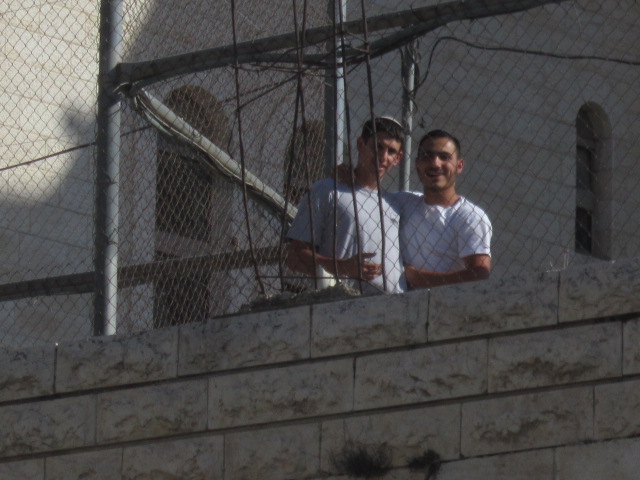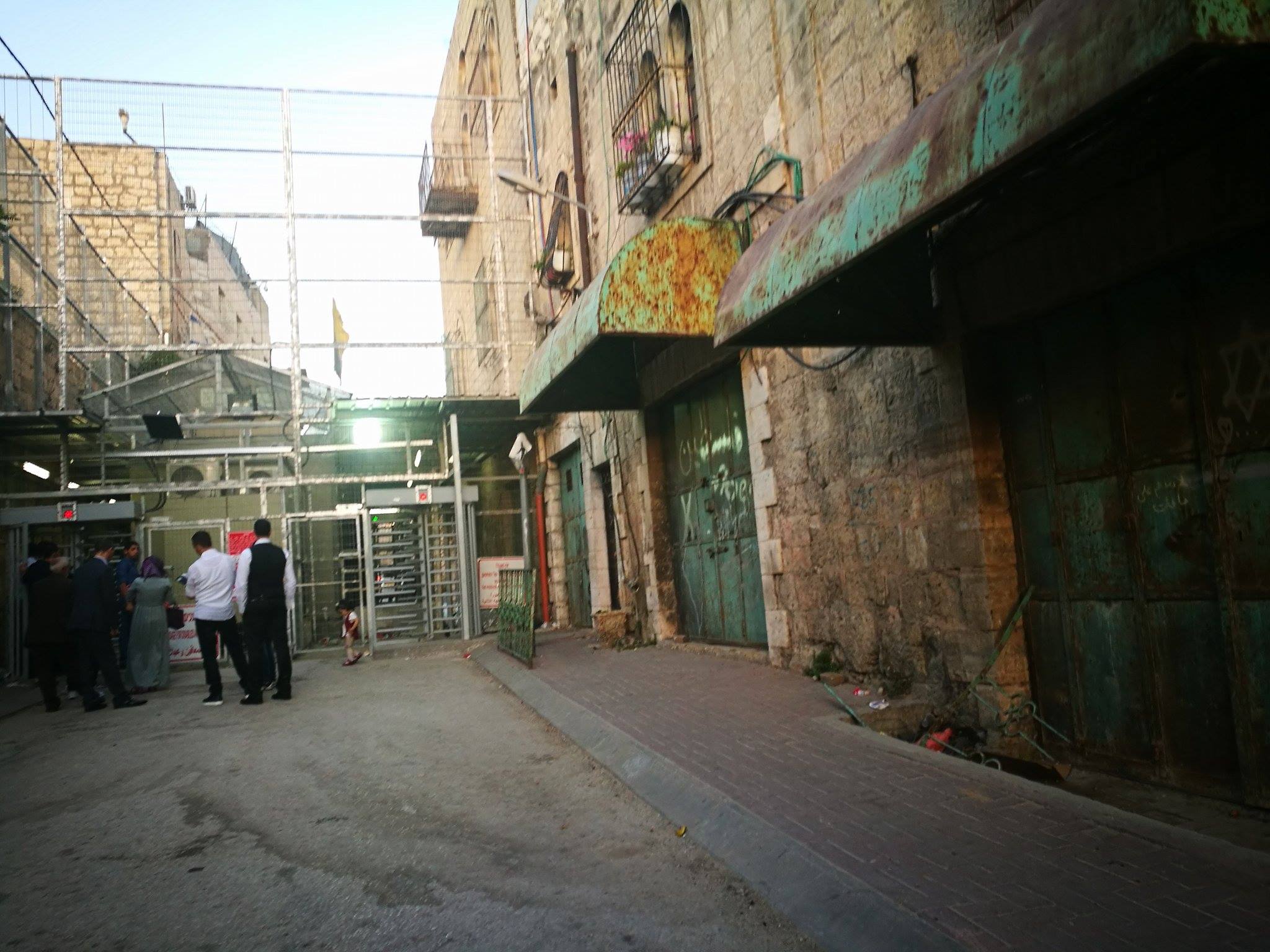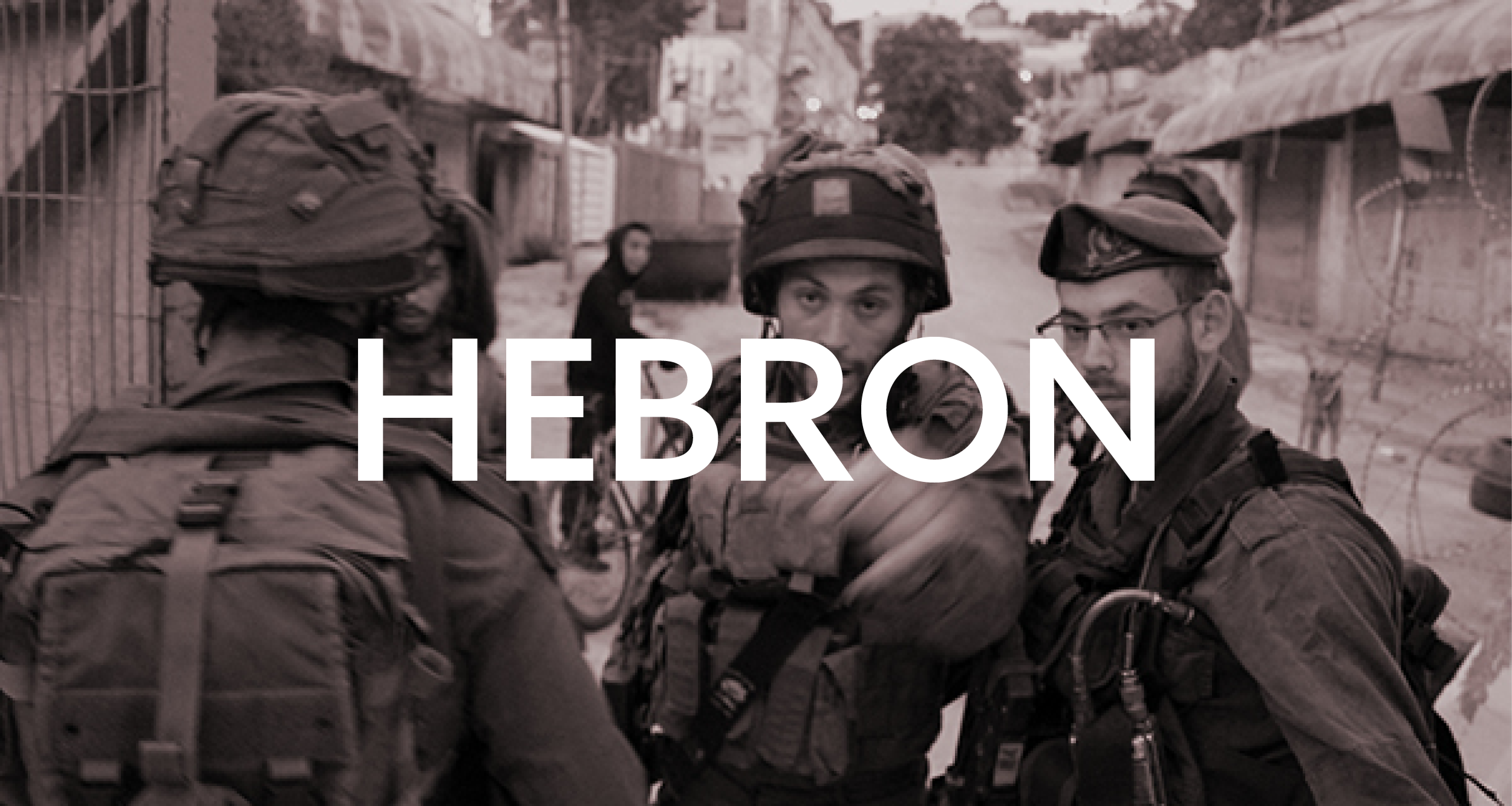Category: Hebron
-
Israeli forces shoot at and arrest 14-year old boy in Hebron
26th June 2017 | International Solidarity Movement, al-Khalil team | Hebron, occupied Palestine A fourteen year old Palestinian boy was shot at by settlers and soldiers before being arrested on the 25th June at 4:00 pm outside Bab al-Baladiya, the military base overlooking the old city in occupied al-Khalil (Hebron). Sources are unclear as to…
-
Palestinians celebrating Eid in a ‘closed military zone’
26th June 2017 | International Solidarity Movement, al-Khalil team | Hebron, occupied Palestine As anywhere all over the world, Palestinian Muslims are celebrating the end of the fasting-month Ramadan with the 3-day feast of Eid. Eid usually is a joyous occasion, everyone dresses up nicely and the most important activity is visiting family. For Palestinians…
-
Palestinian Activist Detained In Hebron
A 22 year old Palestinian activist was detained in al-Khalil this morning. He was held and interrogated for thirty minutes, before being escorted through the Shuhada Street checkpoint. He was released after another half hour with no charge, but was told that Israeli forces would raid his house if they found he was linked to the…



